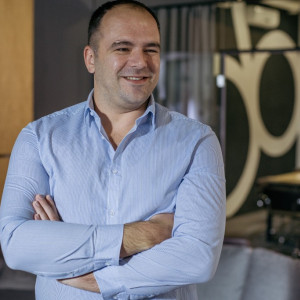What have been some of the challenges?
Company Interview with Ivan, CEO of Base B
Base B, as a model, is a relatively new one, and whenever we are talking with potential customers, one of the first things that comes to their mind is some sort of outsourcing company—but we’re not an outsourcer.
We explain that it’s about allowing clients to have their own team, and that we’re not charging a markup on salaries or limiting communication because everyone we hire is a direct employee of the client.
We also spend time talking about how a remote team can be more effective. There is a school of thought in some businesses that an in-house team is more effective, when in fact, in-house teams are only effective because of the practices they use and the way they operate.
We exercise those practices with remote teams, meaning it’s like having an in-house team in every way except for the geographical location.
Ivan's company, Base B helps companies build effective remote teams. See the tools and training practices that allow them to excel in helping their clients.
Read full interview from Company Interview with Ivan, CEO of Base B .
Company Interview with Doug and Vivek, co-founders of remote tool, Pragli
The biggest challenges I see are:
Communication - Many teams use Slack for everything, which results in a ton of distraction and lower-fidelity conversation.
Loneliness - Especially amongst more junior employees, teammates have difficulty bonding.
Talent Management - I see a lot of remote employees who aren't being challenged enough or aren't receiving enough contact from their boss. Of course, this also happens all the time in offices, but it happens at a higher rate amongst remote teammates.
Doug has interviewed hundreds of remote teams as a co-founder of Pragli. Here's what he sees as common remote management patterns amongst those teams and organizations.
Read full interview from Company Interview with Doug and Vivek, co-founders of remote tool, Pragli.
Interview with Shelly, CEO of Fire Engine RED & remote work pioneer
When we first started, there was no "how-to" book starting and running a fully remote business. I learned by trial and error. This is why, after nearly 20 years of running an all-remote business, I decided to publish Fully Remote, the first how-to book that tells people how to set-up, manage, and lead their own successful all-remote business. This is the book I wish had existed when I first started.
Twenty years ago, Shelly started one of the first all-remote U.S. companies. See how remote work has given Fire Engine RED a competitive advantage & the four most important words in the employee handbook.
Read full interview from Interview with Shelly, CEO of Fire Engine RED & remote work pioneer.


